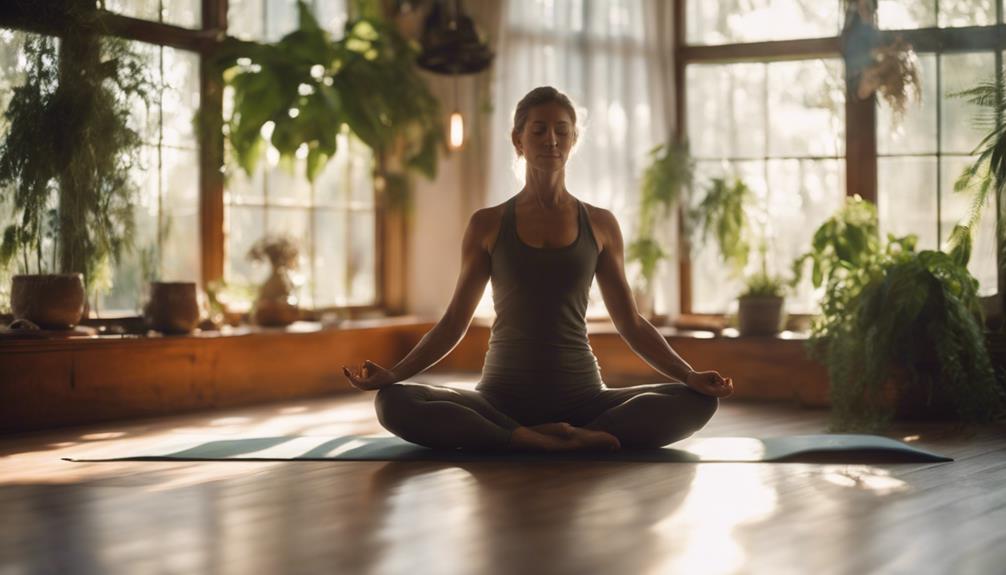Understanding Coping Strategies in Mental Health
Coping strategies are essential tools that individuals use to manage stress, anxiety, and various life challenges. These techniques can be categorized into various types, including problem-focused, emotion-focused, and avoidant strategies. Among these, practices like yoga and meditation have gained popularity as effective coping strategies due to their ability to promote relaxation and mental clarity. In this blog post, we will explore how a person practicing yoga or meditation can enhance their mental wellness and resilience, providing insight into the benefits and techniques involved.
The Science Behind Yoga and Meditation
Research has shown that both yoga and meditation can significantly improve mental health by reducing symptoms of anxiety and depression. Yoga combines physical postures, breathing exercises, and meditation, creating a holistic approach to well-being. On the other hand, meditation focuses primarily on mindfulness and mental clarity. A person practicing yoga or meditation activates the parasympathetic nervous system, which helps to lower heart rates and reduce stress hormones. This physiological response creates a sense of calm and stability, making it an excellent coping strategy for individuals facing life’s challenges.
Benefits of Yoga as a Coping Strategy
Yoga offers numerous benefits that can aid in coping with daily stressors. It enhances flexibility and strength, which can improve overall physical health. More importantly, the mindful aspect of yoga encourages individuals to focus on the present moment, alleviating worries about the past or future. A person practicing yoga regularly may find that they experience improved mood, increased motivation, and a greater sense of control over their thoughts and emotions. Incorporating yoga into a daily routine can serve as a proactive approach to building resilience against stress and anxiety.
Exploring Different Types of Meditation
Meditation is a versatile practice that can be tailored to meet individual needs. There are various forms of meditation, including guided meditation, mindfulness meditation, and loving-kindness meditation. Each offers unique benefits and coping strategies that can fit different lifestyles. For instance, a person practicing mindfulness meditation learns to observe thoughts without judgment, creating a greater awareness of their emotional responses. This practice can lead to improved emotional regulation and a deeper understanding of oneself, making it an invaluable tool for coping with life’s challenges.
Creating a Yoga and Meditation Routine
Establishing a consistent routine is crucial for maximizing the benefits of yoga and meditation as coping strategies. It’s essential to find a time that works best for you, whether it’s early in the morning, during lunch breaks, or in the evening. Begin with short sessions—10 to 15 minutes of yoga or meditation—gradually increasing the duration as you become more comfortable. Consider incorporating different styles and techniques to keep the practice engaging. A person practicing yoga or meditation regularly will likely notice a gradual improvement in their mental wellness and overall quality of life.
Overcoming Challenges in Practicing Yoga and Meditation
While yoga and meditation can be powerful coping strategies, individuals may face obstacles when starting or maintaining their practice. Common challenges include time constraints, distractions, and a lack of motivation. To overcome these hurdles, it’s essential to set realistic goals and create a supportive environment. Consider joining a class or finding a community of like-minded individuals for encouragement. A person practicing yoga or meditation with a supportive network is more likely to stay committed and reap the long-term benefits of these practices.
Integrating Yoga and Meditation into Daily Life
Integrating yoga and meditation into daily life can enhance their effectiveness as coping strategies. You can incorporate short meditation sessions into your daily commute, or practice simple yoga stretches during breaks at work. The key is to remain flexible and open to adapting your practice to fit your lifestyle. Additionally, mindfulness can be applied to everyday activities, such as eating or walking, turning them into opportunities for meditation. A person practicing yoga or meditation in various contexts will likely find it easier to manage stress and maintain a balanced mindset.
Conclusion: The Path to Resilience Through Yoga and Meditation
In conclusion, adopting yoga and meditation as coping strategies can significantly enhance mental wellness and resilience. These practices empower individuals to manage stress, improve emotional regulation, and foster a deeper connection with themselves. A person practicing yoga or meditation not only benefits from the immediate effects of relaxation but also builds a foundation for long-term mental health. By embracing these techniques, individuals can navigate life’s challenges with greater ease and confidence, making yoga and meditation valuable allies in the journey toward mental wellness.
—
Integrating yoga and meditation into your life is not just about physical exercise or quieting the mind; it is a comprehensive approach to fostering resilience and mental health. By understanding and applying these coping strategies, you can empower yourself to thrive, no matter what life throws your way. So, roll out your mat, find a comfortable seat, and take the first step on this transformative journey!What Does Yoga Help With
